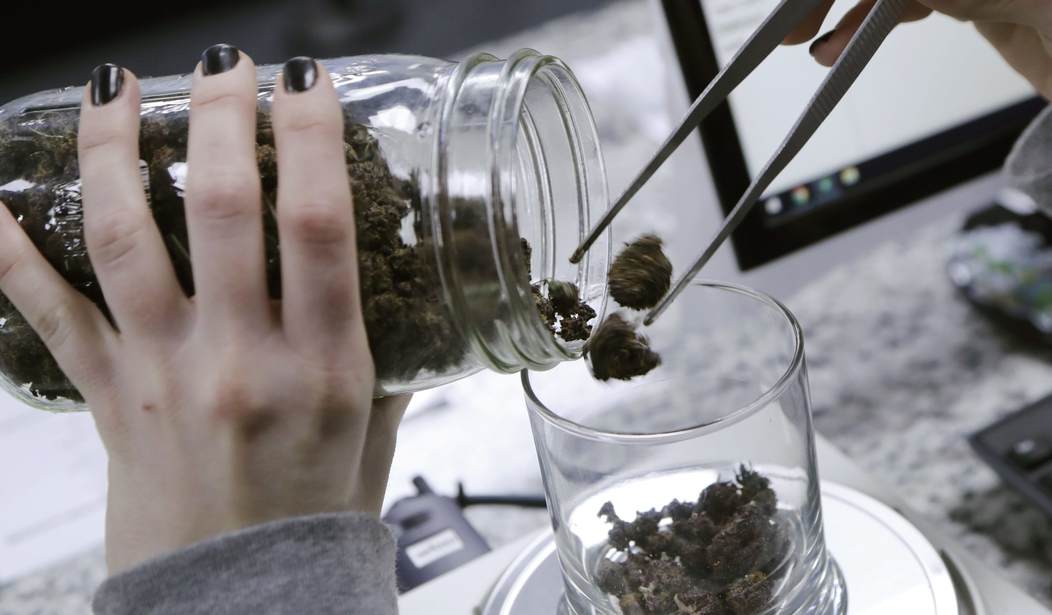Mark Northrup, the mayor of Hudsonville, a small city in western Michigan, told WOOD-TV that he doesn’t want marijuana to be sold in his community, no matter how many voters supported a November ballot proposal to legalize the sale of recreational weed.
“Nothing good is going to come from this,” Northrup said, “and we are drawing a line in the sand.”
Northrup said the Hudsonville City Commission planned to adopt a resolution banning the sale of pot within the city’s limits as soon as the new marijuana law takes effect Dec. 6.
Michigan communities that don’t want to allow retail marijuana sales are required to “opt out” as Hudsonville did.
Cedar Springs, another small western Michigan town, passed a resolution blocking retail pot sales even before the November vote on Proposal 1 that legalized smoking pot and selling it.
At least two other western Michigan cities are expected to do the same.
Jennifer Rigterink, legislative associate at the Michigan Municipal League, said some communities have a problem with Proposal 1 because its language was “clear as mud” — an allegation Proposal 1 backers deny.
“There’s definitely been a lot of questions and part of the answer is ‘well, we think this is what it meant, but until it’s litigated, we won’t know for sure,’” Rigterink told the Detroit News.
But, no matter what city officials do, people will still be able to smoke pot at home because Michigan voters overwhelmingly supported Proposal 1 on Nov. 6. Josh Hovey, a spokesman for the Coalition to Regulate Marijuana Like Alcohol, said his group defeated a campaign of fear.
“The Proposal 1 campaign boiled down to one of fact versus fear,” Hovey said in a statement following his group’s victory. “The data from nine other states that have legalized marijuana made clear that regulation and taxation are a better solution.”
Hovey said the passage of Proposal 1 made Michigan the second-most populous state in the nation to legalize recreational marijuana and the first to do so in the Midwest.
Rich Studley, the CEO of the Michigan Chamber of Commerce, doesn’t want to trumpet that as part of his group’s economic development message.
“In Michigan, we’re proud to be the Great Lakes State. Hopefully, voters may have second thoughts about making this the Gray Haze state,” Studley said to the Detroit Free Press.
Scott Greenlee, the president of Healthy and Productive Michigan, the group that led a campaign against passage of Proposal 1, told reporters his organization is going to do more than “hope” Michigan voters eventually rise up against legal weed.
Greenlee described voters’ support of Proposal 1 as “misguided” and “misinformed” as he voiced support for a community-by-community rejection of the retail sale of marijuana. Greenlee stated that close to 75 percent of Colorado municipalities have declined to allow the sale of marijuana within their borders. He hopes to see the same wave in Michigan.
“We heard overnight, me in particular, from a number of communities around Michigan, literally 20 or 25, that were essentially saying, ‘This is awful. How do we opt out?’ ” Greenlee said the day after voters approved Proposal 1.
It could happen. Medical marijuana has not been greeted with open arms by most Michigan cities. As of Aug. 1, the Free Press reported, only 103 of the 1,773 cities, villages and townships in the state allowed medical marijuana businesses to open.
“Our goal is to get marijuana out of the neighborhoods,” Cecil St. Pierre Jr., the president of the city council in Warren, a Detroit suburb, said last spring during a medical marijuana debate. “Not grow it in the homes and neighborhoods.”
Robert Hendricks, one of the members of the committee that drafted Proposal 1, isn’t worried about an anti-pot backlash. He said that’s how democracy is supposed to work.
“At some point,” Hendricks predicted, “we will get to a tipping point in our democracy where almost everybody agrees prohibition doesn’t work and then it will be easy.”
But maybe not.
The GOP-dominated, Chamber of Commerce-friendly Michigan Legislature can amend any ballot proposal, no matter the election results, with a three-fourths vote. So, there’s some democracy for you.
Greenlee, even though he’s disappointed that Proposal 1 passed, told reporters he and his group are not about to surrender the state to retail pot sellers.
“We put all of our energy and resources into educating voters so, hopefully, we wouldn’t have to be at this place,” Greenlee said. “But we are going to look at it full steam and full speed ahead at this point and explore every option from a legal, policy and practical standpoint.”









Join the conversation as a VIP Member